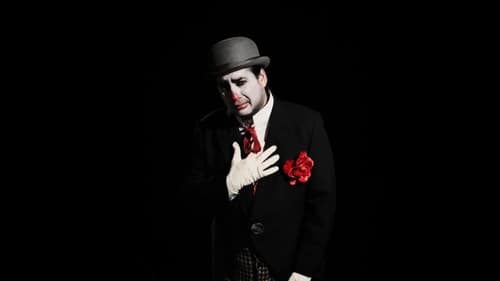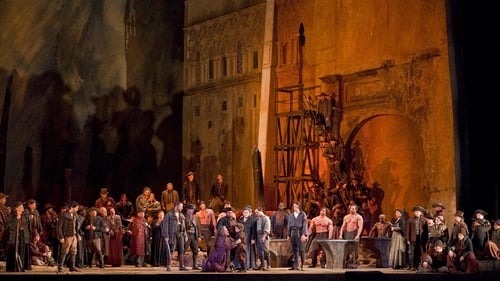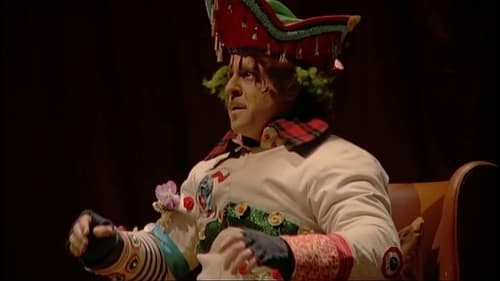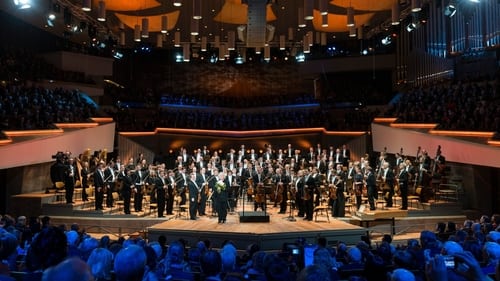Marcelo Álvarez
Nacimiento : 1962-01-01, Buenos Aires, Argentina.

Manrico
Alex Ollé, one of the famous La Fura dels Baus, recreates the conflict and places principal protagonists in clear, transforming set with supporting lighting – facing all primal emotions directly, with no place to hide. The set design (smart and impressive solution of scenography by Alfons Flores) encased in mirrors and accented with silently moving columns, creating cloister, battlefield, cemetery or castle with minimalistic hints (impressive lighting design by Urs Schönebaum), gives us the opportunity to keep full attention on the vocal performance of main characters.

Turiddu / Canio
Director David McVicar’s new production brings opera’s favorite double bill to new life, setting the two operas in the same Sicilian setting, separated by two generations. Marcelo Álvarez takes on the rare feat of singing both leading tenor roles. In Cavalleria, he is Turiddu, the young man who abandons Santuzza (Eva-Maria Westbroek) in his pursuit of the married Lola (Ginger Costa-Jackson)—and ends up being killed in a duel with her husband, Alfio (George Gagnidze). In Pagliacci, Álvarez is Canio, the leader of a traveling vaudeville troupe. Patricia Racette sings Nedda, his unfaithful young wife, whose plans to run away with her lover are foiled by her spurned admirer Tonio (George Gagnidze)—with equally tragic consequences. Met Principal Conductor Fabio Luisi is on the podium.

In a mythical yet real Rome, from the shadows of the church of Sant’ Andrea della Valle to the terrace of Castello Sant’ Angelo, passions collide and tear all apart, mingling the erotic with the sacred, love with possession, theatre with life. Nothing is what it seems in Tosca. Live from the Opéra Bastille in Paris.

Manrico
To stage Verdi's Il Trovatore, according to Arturo Toscanini, you need to bring together the four best singers in the world. This stunning production at Milan's La Scala unites four luminaries of today's opera scene to great effect: with his lilting legato, Marcelo Álvarez (Manrico) does justice to the opera's bel canto character; Franco Vassallo brings assurance and flair to the Count di Luna; Maria Agresta (Leonora) effortlessly rises to the challenges of the score; and Ekaterina Semenchuk (Azucena) also masters the most difficult notes. With the fastidious Daniele Rustioni leading La Scala's world-class orchestra, the music leads the action apace, resounding alongside the hall's legendary chorus and amid monumental sets and decor in this sublime production of one of the world's favorite operas.

Enzo Grimaldo

King Gustavo III (Riccardo)
David Alden’s elegant 2012 production moves Verdi’s thrilling drama to a timeless setting inspired by film noir. Marcelo Álvarez is Gustavo III, the Swedish king in love with Amelia (Sondra Radvanovsky), the wife of his best friend and counselor, Count Anckarström (Dmitri Hvorostovsky). When Anckarström joins a conspiracy to murder the king, tragedy ensues. Stephanie Blythe is the fortuneteller Madame Ulrica Arvidsson and Kathleen Kim sings the page Oscar. Met Principal Conductor Fabio Luisi is on the podium.

Manrico
Giuseppe Verdi's masterpiece calls for 4 great singers: one weak link and the whole may collapse. The Metropolitan Opera assembled a quartet of stars for this new production by David McVickar: Sondra Radvanovsky, Marcelo Álvarez, Dolora Zajick, and Dmitri Hvorostovsky. The opera - about mistaken identities and hair-raising bloody revenge - could hardly receive a better performance.

Manrico
Verdi’s IL TROVATORE again storms the Met stage in a star-studded, anvil-wielding cast , including Sondra Radvanovsky, Dolora Zajick and Dmitri Hvorostovsky. Marcelo Álvarez sings Manrico, the troubadour of the title. The story is well-known already: The gypsy Azucena has harbored a grudge for thirty years, but she is about to have revenge at last. Meanwhile, her son Manrico is in love with Leonora, but so is his arch-enemy, the Count Di Luna. A pot-boiler, where every tune is a hit.

Manrico
This recording of "Il Trovatore" was held in Parma in 2010. The production is minimalistic. The scenario reminds, vaguely, the lunar surface. In the background, in several scenes, there is a huge full moon, sometimes white, sometimes red - the effect is beautiful and suitable for the nocturnal atmosphere of this opera. Few objects in the scene, including a big horse and giant candles. The costume indicates, directly, who is who: soldiers, nuns, gypsies. Regarding the musical aspects: excellent participation of choir and orchestra. The conductor is the seasoned Yuri Temirkanov. He keeps the orchestra under control (though there is one or two moments of disagreement with the singers), with some pleasant surprises.

Mario Cavaradossi
Puccini’s musical thriller of lust, murder, and politics is one of the most dramatically riveting operas in the repertoire. Luc Bondy’s production, with sets by Richard Peduzzi and costumes by Academy Award-winning designer Milena Canonero, opened the Met’s 2009–10 season. Karita Mattila stars as the beautiful and dangerously impulsive singer Floria Tosca. Marcelo Álvarez is her lover, the painter Cavaradossi, a political enemy of the powerful chief of police, Scarpia (George Gagnidze), who wants Tosca for himself.

Maurizio
In the present stylised production by Lorenzo Mariani the 'violet-perfumed murderess' is taken by mezzo-soprano Marianne Cornetti, one of the most in-demand representatives of her vocal category. Opposite her, in the role of Adriana, is a soprano who as a Verdi and verismo specialist also appears regularly at all the major international opera houses, Micaela Carosi. The 'cock-of-the-walk' role is sung by the world-class tenor Marcelo Álvarez. His timbre, velvety smooth yet robustly virile, is ideally suited to a vocal characterisation of the idolised Maurizio. Conductor Renato Palumbo is very much at home with Cilea's operatic masterpiece, since the Italian Romantic and verismo periods are at the core of his extensive repertoire.

Riccardo
Passion, loyalty and political conspiracy are the three pillars of Un ballo in maschera (1859), the 'most operatic of all operas'. Set in 19th-century Boston, Mario Martone's atmospheric production for the Teatro Real brings out all the innate theatricality and drama of Verdi's work. World famous Argentinean tenor Marcelo Álvarez, in the role of Riccardo, leads a fabulous cast including Lithuanian soprano Violeta Urmana as his lover Amelia, and Elena Zaremba as the witch Ulrica. Jesús López Cobos conducts the Madrid Symphony Orchestra and Chorus in a performance that emphasises the lyricism and majesty of this wonderful work, in which grand opera and opera comique are woven into the Classical Italian Opera style.

Rodolfo
Part of Tutto Verdi series - Luisa Miller (2007) Parma.

Mario Cavaradossi
Puccini’s melodrama about a volatile diva, a sadistic police chief, and an idealistic artist has offended and thrilled audiences for more than a century. Critics, for their part, have often had problems with Tosca’s rather grungy subject matter, the directness and intensity of its score, and the crowd-pleasing dramatic opportunities it provides for its lead roles. But these same aspects have also made Tosca one of a handful of iconic works that seem to represent opera in the public imagination.

Werther
Filmed at the Vienna State Opera in 2005, Andrei Serban's production of Massenet's opera with a late 18th century setting pushes the action forwards to the 1950's,with the visuals exemplifying that decade with precision.With as much delicacy on display as naked passion,his(Alverez)morbid poet is outstandingly realised both vocally and dramatically. Together with Erod's dour Albert and Ileana Tonca's Sophie-clearly in love with Werther herself-the drama is set out with unusual clarity and realism.Philippe Jordan ensures that Massenet's pent-up emotion explodes exactly on cue,its expressive power providing impossible to resist.

Rodolfo
Bruno Bartoletti conducts the orchestra and chorus of the Teatro alla Scala in this production of Puccini's opera from 2003. The performers include Cristina Gallardo-Domas, Hei-Kyung Hong, Marcelo Alvarez and Roberto Servile.

Duke of Mantua
In Rigoletto, the deformed figure of the hunchbacked jester at the Mantuan court acts as a foil to his cynical and powerful master, an unscrupulous philanderer contrasted with his cruel and unforgiving fool. Rigoletto encourages and welcomes the Duke's conquests, pitilessly mocking his victims until he discovers that the Duke has abducted the one person he genuinely loves, his own daughter. As a result, the character of the court jester is transformed into a tragic figure who, in spite of his evident immorality and malice, allows us to sense the devotion he feels for his daughter and his horror at being destroyed by the same despotic world as that which he himself has helped to create.

Edgardo
Live from the Teatro Carlo Felice di Genova 2003

Gennaro

Duke of Mantua
La corrupción de la inocencia se sitúa en el centro mismo de la potente tragedia de Verdi en la producción de David McVicar para The Royal Opera. La producción de David McVicar subraya la crueldad en el seno de la corte de Mantua. Cortesanos ricamente vestidos participan en orgías y jolgorios al son de las pegadizas y animadas danzas de Verdi. Entre los muchos números musicales famosos de la ópera se encuentran la efervescente “La donna è mobile”, en la que el duque alardea de su desprecio por las mujeres; los exquisitos y quejumbrosos dúos con Rigoletto y el duque; y el extraordinario cuarteto del Acto III, que entreteje hermosamente las voces al tiempo que la historia se encamina a toda prisa hacia su devastadora conclusión.

Chevalier des Grieux
Live 2001 recording at the Bastille opera in Paris in a production for l'Opéra de Paris by Gilbert Deflo. High praise was given to the historical costumes by William Orlando, the minimal décor, the sophisticated lighting as well as the musical excellence of the performers. It was also due to the charisma of Renée Fleming; she confessed in an interview, "I think Manon is my favorite role. I love French music, it is so elegant and delicate stylistically. It has both dramatic and lyrical elements." Marcelo Alvarez was thought brilliant in the role of the Chevalier des Grieux, and among the other artists were Jean-Luc Chaignaud as Lescaut, Alain Vernhes as the Comte des Grieux and Michel Sénéchal as Guillot de Morfontaine. The choir and orchestra of l'Opéra de Paris were conducted by Jesús López-Cobos.

Self - Tenor
The annual New Year’s Eve Concert is one of the highlights in the calendar of every classical music fan in Berlin and beyond. On New Year‘s Eve, the Berliner Philharmoniker invite an exceptional soloist for a festive gala. Together, the musicians bid farewell to the old year and welcome the new. The 1998 concert was conducted by Claudio Abbado and featured Marcelo Álvarez (tenor), Mirella Freni (soprano), Simon Keenlyside (baritone), Christine Schäfer (soprano) performing: Wolfgang Amadeus Mozart: Le nozze di Figaro (Excerpts), Wolfgang Amadeus Mozart: Don Giovanni (Excerpts), Georges Bizet: L'Arlésienne (Excerpts), Gioachino Rossini: La gazza ladra: Overture, Giuseppe Verdi: Rigoletto (Excerpts), Giuseppe Verdi: Un ballo in maschera (Excerpts), Hector Berlioz: Le Carnaval Romain, Piotr Ilyich Tchaikovsky: Eugene Onegin (Excerpts), Giuseppe Verdi: La Traviata (Excerpts).

















